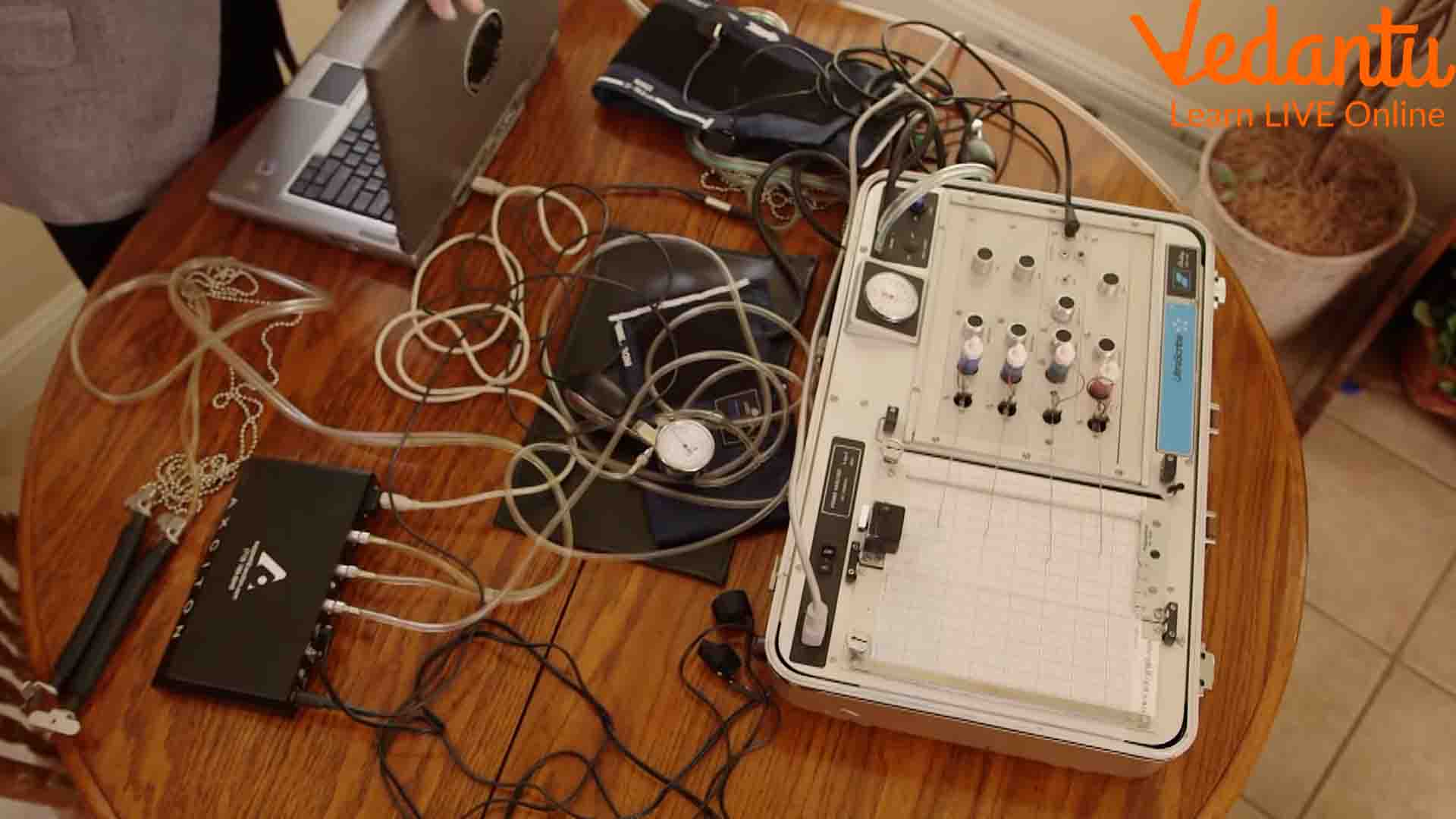Scientific Explanation Behind Lie Detector Testing
We have seen movies and serials where criminals are tested with lie detectors. They are made to take this test to check whether they are telling the truth or not. It is not physically possible to find out whether someone is telling the truth unless there is hard-bound evidence. How does a lie detector work? Well, there is definitely a science behind it.
It should have made your intuitive minds think about how lie detectors work. You have seen wires with sensors attached to the fingers and other places in a person’s body to check the vitals. Is this how a lie detector works? Let us find out what a lie detector is first and then proceed to unravel the mystery.
What is a Lie Detector?
A lie detector is an instrument designed to check the vitals when a person is answering certain questions. It aims to check whether it is true or a lie. The physiological changes in a person intentionally lying can be distinguished by the operator of this device. Lie detectors are not accurate and hence their results are not taken as conclusive evidence when used for making a person confess.
To describe it in simpler words, a lie detector is a polygraph machine that can detect and record various physiological phenomena or vital signs such as pulse rate, blood pressure, respiration, etc. With the help of the noted vital signs, a conclusion is roughly made regarding the answers given by an individual when questioned. This is roughly a lie detector testing method lawmakers follow.
There are different notions regarding the invention of the lie detector. William Moulton Marston was an American psychologist who invented the first prototype with Elizabeth Holloway, his wife in the 1920s.
In the same context, John A. Larson, a physiologist by profession, created a working prototype of a polygraph in 1921. He was also a policeman in California. He noted the continuous changes in blood pressure and respiration rate when someone lies. He then designed a device to detect deception in the answers given by an individual being tested.

A Polygraph Test for Detecting Lies
Are Lie Detectors Accurate?
It is hard to conclude as the response to a polygraph test varies from person to person. Despite the diversity, lawmakers can get a conclusive report that might lead the investigation in a new direction.
From the mechanism of polygraph lie detector tests, we can conclude that a polygraph is designed to check the certain vitals of an individual. The logic of all the models used to date is the same. This device helps us to monitor the slightest sudden changes occurring in those vitals when a person is lying.
Let us consider an example to find out how lie detectors work.
Imagine you have stealthily reached the refrigerator in your home and eaten the leftover ice cream. This sneaking activity will eventually come out in public when your mother finds out that a few scoops of ice cream are not where they are supposed to be!
When she asks you, you suddenly start feeling scared. Your heart rate will automatically increase during such interrogation. You will also find it difficult to lie to your mother. This stressful situation will cause sudden changes in your body. Even if you manage to lie, detecting these vital changes will tell a different story.
This is how a polygraph test works. Your heavy breathing and sweating will be recorded by the device and the interrogator will understand that you are hiding something.
Debatable Truth of Lie Detectors
Do lie detectors really work? Well, they are good at detecting the vital changes in a person’s body but the results may not be conclusive. The intensity of the results varies from person to person. The detection is done based on the abnormal graphs depicted on paper.
The operators are aware of the normal graphs or results. They can detect there are some changes in the pulse rate, heartbeat rhythm, respiration rate, blood pressure, etc. The problem is when a person is interrogated, he automatically becomes anxious. He feels scared that his answers might land him or someone in trouble. This is where the vitals can be showing some erroneous results even when the person is innocent.
You might have witnessed how you feel disoriented when your teacher asks you about something you have not done but your friends did. Imagine taking a polygraph test where your friends are on the line. You will automatically fluster and give outputs that polygraph will not consider normal.
Then, how come these tests are conducted by the lawmakers in serious conditions? The operators can nullify such effects on a person and can find out the conclusive response to an individual based on the vitals.
Lie detection tests are not accurate for sure as it does not have any standard or solid reference frame to compare the results.
The Truth Finds Its Own Way
We all have learnt that the test results may not be accurate. Hence, polygraph tests are considered to be hints, not evidence. The accuracy of the results is debatable but lawmakers can get a hint from the conducted tests.
They will not let the subject know the results and will take the necessary actions. For instance, an individual is being questioned regarding the location of a criminal. He may fool the investigators personally but will not be able to hide his vitals.
We humans are not that good at understanding physiological changes under challenging circumstances. But, the lie detector helps us to make a move when the cases are not showing any path to follow. Professionals use these detection tests to find anything prominently abnormal with the results and continue their investigation accordingly. This is how lie detectors are used in real life.







